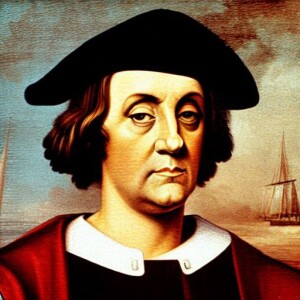Columbus Day, commemorated on the second Monday in October, has long been a subject of debate and controversy. The holiday marks the arrival of Christopher Columbus in the Americas on October 12, 1492. While it has traditionally been celebrated as a day to honor Columbus’s achievements and his role in European exploration, there is a growing movement calling for a reevaluation of this holiday. Critics argue that Columbus’s actions towards indigenous peoples were marked by violence, exploitation, and the beginning of a painful history of colonization. They emphasize the devastating impact that European colonization had on the native populations, including forced labor, diseases, and cultural suppression. As a result, many cities and states across the United States have chosen to rename or replace Columbus Day with Indigenous Peoples’ Day, which seeks to recognize and celebrate the rich cultures, contributions, and resilience of Native Americans.
The debate surrounding Columbus Day raises important questions about how we choose to remember historical figures and events. It challenges us to critically examine the narratives we have inherited and consider the perspectives of marginalized communities. Supporters of Columbus Day argue that it is essential to acknowledge Columbus’s role in history, as he is credited with opening up the New World to European exploration and paving the way for the eventual establishment of the United States. They view Columbus as an important figure in the context of his time, and argue that judging historical figures by contemporary standards is unfair and ignores the complexity of history.
However, opponents argue that celebrating Columbus Day perpetuates a whitewashed version of history that ignores the suffering and oppression endured by indigenous peoples. They argue that honoring Columbus not only overlooks the atrocities committed by him and his crew, but also sends a harmful message to Native Americans, who have long been marginalized and displaced. By replacing Columbus Day with Indigenous Peoples’ Day, they hope to bring attention to the ongoing struggles and resilience of indigenous communities, as well as promote a more inclusive and accurate understanding of history.
The controversy surrounding Columbus Day is not limited to the United States. Countries across the Americas, including Canada and several Latin American nations, have their own versions of Columbus Day or celebrate it under different names. In recent years, there has been a push in some countries to redefine the holiday or replace it with alternative commemorations that focus on indigenous peoples and their history. This global conversation reflects a broader shift towards reevaluating colonial legacies and acknowledging the rights and experiences of marginalized communities.
As we navigate the legacy and controversy surrounding Columbus Day, it is important to approach the discussion with empathy, open-mindedness, and a commitment to learning from the past. Whether we choose to celebrate Columbus Day, Indigenous Peoples’ Day, or any other alternative, it is crucial that we continue to engage in meaningful conversations about history, colonialism, and the ongoing struggles for justice and equality. Only by acknowledging the complexities of our collective past can we move towards a more inclusive and just future.

